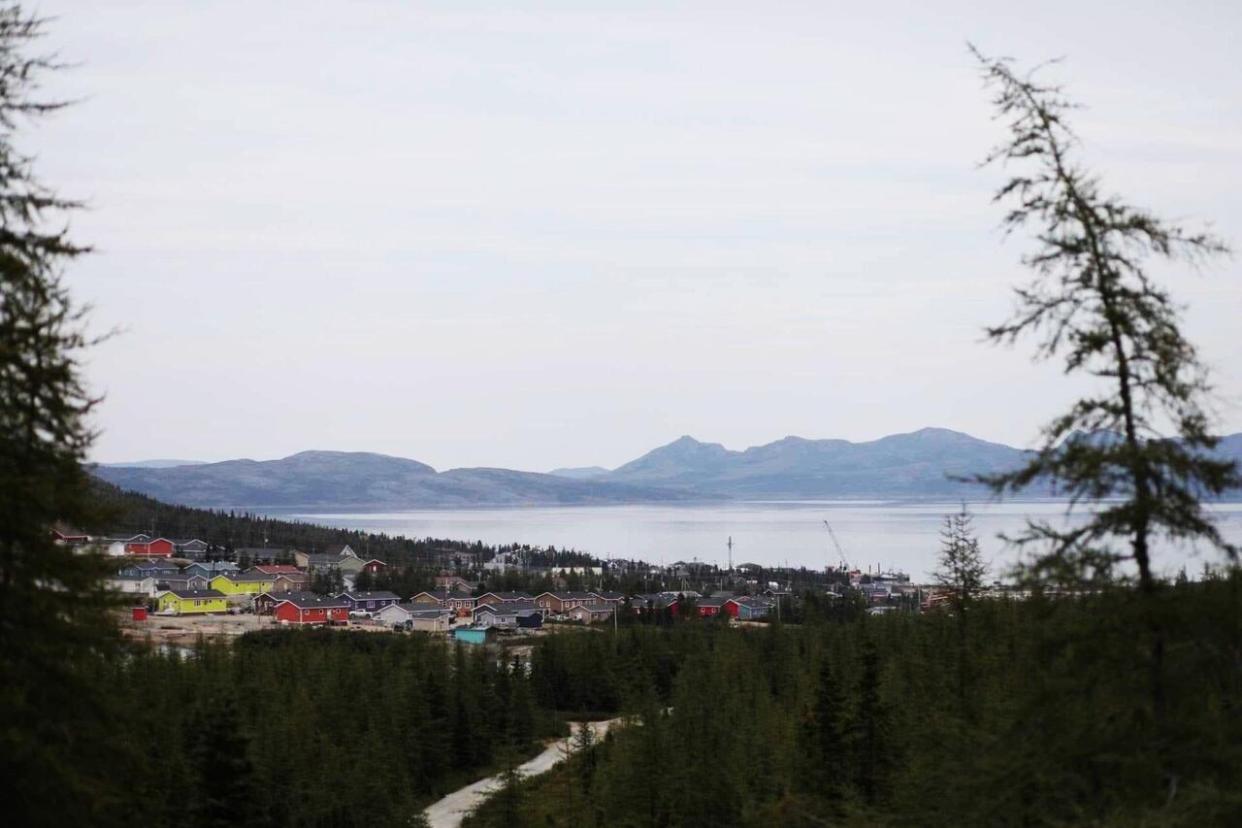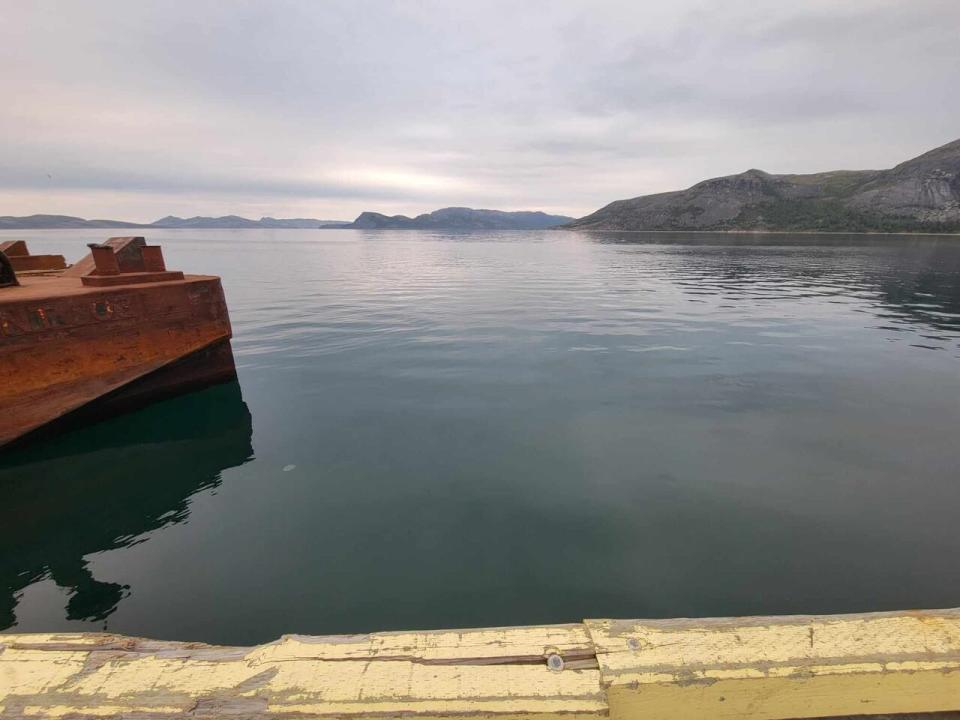Nunatsiavut government monitoring after fuel spill in Nain harbour

The Nunatsiavut government says it's testing water and fish samples after a fuel spill in the Nain harbour as the local Inuit government is calling for accountability in the wake of the spill.
The Canadian Coast Guard said it received a report that on Aug. 19, the M/V Keewatin was transferring fuel onboard near the main dock when diesel spilled into the Labrador Sea. The coast guard said a boom and other material was released to try and contain the spill.
Breagh MacDonald, acting superintendent of environmental hazards response, said the spill is estimated to be about 10 to 15 litres. Typically diesel is too thin to be recovered with mechanical skimming, so it's usually left to spread out and evaporates relatively quickly, MacDonald said.
MacDonald said the harbour authority worker who estimated the spill had recently completed the Canadian Coast Guard's in-house oil spill response training and they trusted his assessment.
"One litre of diesel can spread to cover an area the size of a football field. So a lot of the time diesel on the water can look a lot worse than it is to the untrained eye," MacDonald said.
Nain AngajukKak Joe Dicker said fuel could be seen across Unity Bay.

The Nain harbour in September 2022. Nunatsiavut is monitoring the harbour following a fuel spill earlier this month. (Heidi Atter/CBC)
"All across the harbour, on the shore, high water mark, the tide went down and the fuel stayed where it was," Dicker said. "You could see the fuel on the rocks and on the sand everywhere."
The Canadian Coast Guard does not investigate the cause of spills, but other federal departments are investigating, MacDonald said. Transport Canada's public records say the Keewatin is owned by R.J.G. Construction Ltd based in St. John's. CBC has requested an interview with the company but did not hear back by publishing time.

Joe Dicker is the AngajukKak of Nain. Dicker said he wants to see accountability in the wake of the fuel spill in Nain. (Nunatsiavut.com)
Dicker said he wants to know what's being done to investigate and who's going to be paying for the cleanup and monitoring of the spill.
"This should be taken seriously," Dicker said. "Somebody's gotta be responsible."
Spill reported by harbour worker, not vessel: coast guard
MacDonald says the spill was reported by the Nain Harbour Authority, not the owner or captain of the M/V Keewatin, which is required.
"We did have a conversation with the vessel," MacDonald said. "They were given the Canadian Coast Guard's pollution reporting line for the future and told that it is their responsibility to report and pollution that enters the water from their vessel."
The Nunatsiavut government said while it doesn't have jurisdiction over the harbour, it's conducting its own sample testing and interviews to understand what happened and support the community.
"Labrador Inuit rely on the marine environment for food and their well-being. So understanding impacts from any incident is absolutely imperative," said Rodd Laing, director of environment.
The government has taken photographs, spoken with community members, harbour workers, and workers on the vessel, as well as water and fish samples, Laing said.
Dicker said contamination is top of mind as this summer Health Canada issued an advisory warning people in Nain and Postville to not ingest too many of certain wild eggs or their risk of cancer can increase due to heavy oil contaminates.
Laing said country food is still safe to eat and can be the most nutritious for community members. He said the oil contaminants in the eggs were not specifically tied to diesel, but they are still analyzing the samples to find out if there will be any impacts from this spill.
"They have every right to be concerned when fuel is being spilled into the marine environment," Laing said.
"But it's really important that people remember that wild food is still healthy and safe to eat."
Get the news you need without restrictions. Download our free CBC News App.


